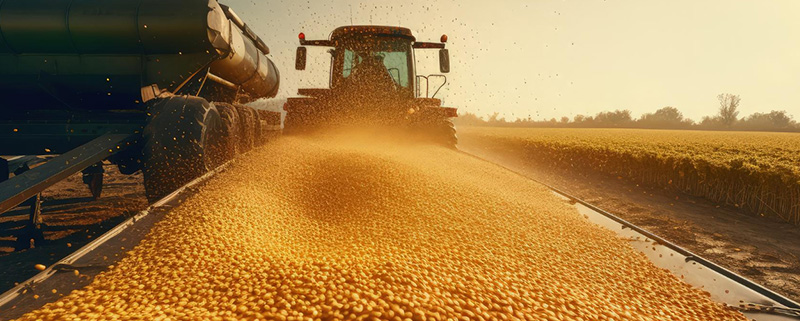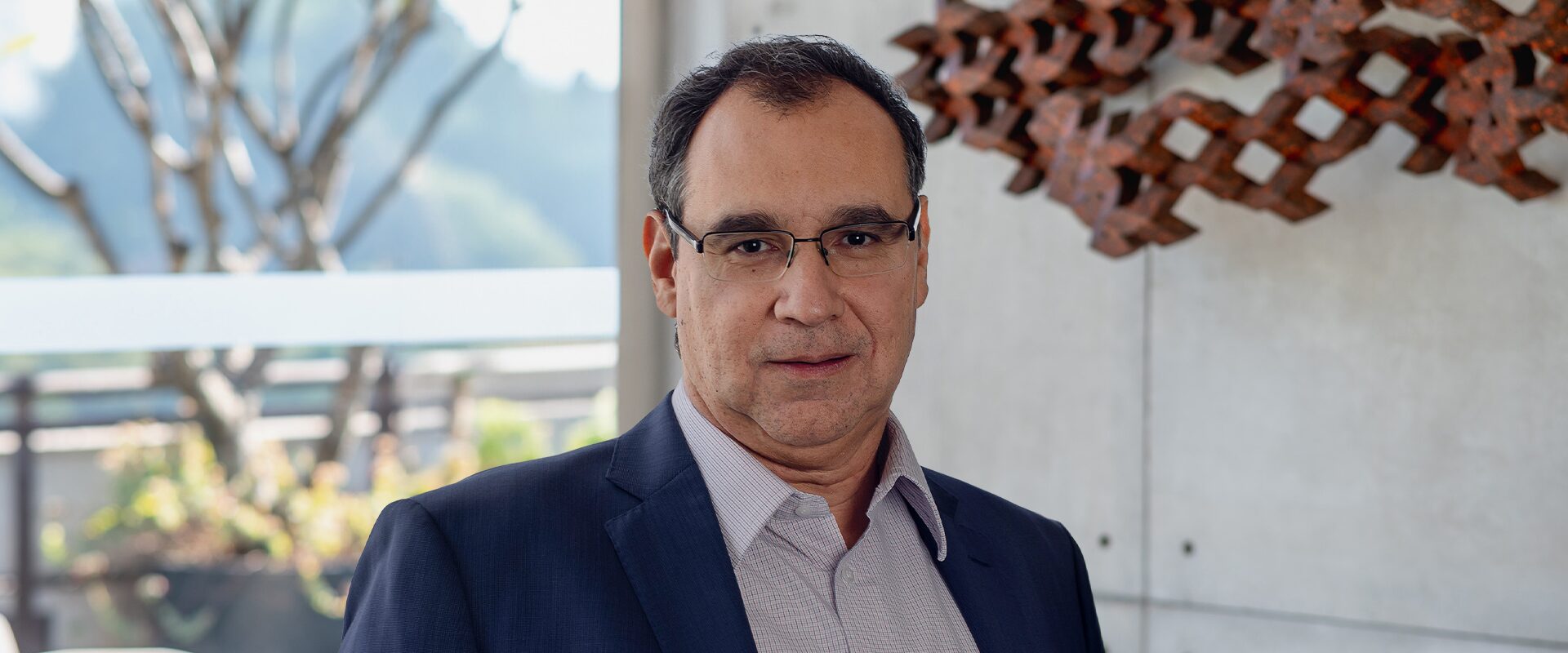
The Agribusiness Newsletter brings information and news about the main regulations and legal texts relating to the regulation of agribusiness in Brazil. This initiative seeks to cover the agribusiness industry on its transactional, litigation, tax and regulatory levels, and is an invitation for all of those working in this market to both access important news and comments on vital topics from the sector.
This material is for informative purposes only, and should not be used for decision-making. Specific legal advice can be provided by our legal team.
NEWS

FIAGRO industry reaches a significant milestone in April 2024 and awaits new regulations
Investment Funds in Agroindustrial Productive Chains (“FIAGRO”) reached a significant milestone in April 2024, recording BRL 497.7 million in issuances, the best monthly result of the year. This figure represents an increase of 391.3% compared to the previous month, although it is 21% lower than the same period last year, according to data from the Brazilian Financial and Capital Markets Association (“ANBIMA”). Altogether, the amount refers to nine public offerings, eight of them belonging to FIAGRO-FIDC, in the area of credit rights, and one to FIAGRO-FII, in the real estate sector.
In terms of net funding, Fiagro raised BRL 5.5 million in April 2024, a decrease compared to the BRL 962.3 million in April 2023. Still, the accumulated amount for 2024 already totals BRL 530 million. Meanwhile, the net assets of the funds increased by 139% in the last 12 months, reaching BRL 35.5 billion, and FIAGRO-FIIs accounted for almost half of this amount. The number of funds also increased from 65 to 103 during the period mentioned.
Under these circumstances, the regulation of FIAGRO is one of the priorities on the 2024 regulatory agenda of the Brazilian Securities and Exchange Commission (“CVM”). In anticipation that the new legislation will bring more robustness and clarity to the sector, one of the most eagerly awaited annexes of CVM Resolution No. 175, of December 23, 2022, as amended, refers to the regulation of FIAGRO, which will be integrated into Normative Annex VI, replacing CVM Resolution No. 39, published on July 13, 2021, on a transitional and experimental basis. The changes promise to further strengthen the development of this type of fund in the financial and agribusiness market.
For more information, access the article in full.
AGRO IN THE MEDIA

Court-supervised reorganization in agribusiness: a new avalanche ahead?
The inevitable (and dreaded) April 30 has passed. From now on, the real extent of producers’ default is becoming clear.
Carbon market: land issues and legal disputes hinder growth in the Amazon
As the segment grows, experts point out that new challenges to the courts are likely to emerge.
REGULATION

TAX REGULATION:
Tax Reform
We have created an e-book that highlights all the aspects of the Tax Reform Regulation Bill currently being analyzed by the National Congress.
For more information, access the e-book in full.
STJ equates live animal with meat for granting presumed PIS/Cofins credit
The First Panel of the Superior Court of Justice (“STJ”) has equated live animals with meat for the purposes of applying the presumed credit for the Social Integration Program (“PIS”) and the Social Security Financing Tax (“COFINS”), using the percentage of 60%, in accordance with article 8, paragraph 3, item I, of Law No. 10,925/04. The benefit is aimed at taxpayers who are legal entities, including cooperatives, which produce animal or plant-based goods. According to the Panel’s position, the granting of the presumed credit should not be conditioned on the origin of the input used to obtain the product produced or marketed, and the physical reality between live animals and their meat within the context of this operation is therefore indifferent.
Based on these updates, we would like to highlight that there are numerous opportunities for taking advantage of ordinary and presumed PIS/COFINS credits in the agricultural sector.
ENVIRONMENTAL REGULATION
Federal
Ministry of the Environment and Northeast Consortium enter into cooperation agreement on Caatinga Fund proposal
The Ministry of the Environment and the Northeast Consortium – created in 2019 and formed by the nine states of the Northeastern region – have entered into a cooperation agreement to analyze the proposal for the Caatinga Fund, aimed at allocating funds to the conservation and sustainable development of the region.
The project seeks the conservation of the Caatinga biome and the stimulation of sustainable development of Brazilian biomes, in line with the commitment to zero deforestation in all biomes by 2030.
For more information, access the article in full.
Brazilian Forest Service and BNDES enter into agreement to boost green energy in the Amazon
The Brazilian Forest Service (“SFB”) and the Brazilian Development Bank (“BNDES”) have entered into an agreement to develop forest concession projects focused on renewable energy production. During the execution of the agreement, partnerships were established for restoration and sustainable forest management studies in national and state public forests, with investments from the BNDES and the Inter-American Development Bank (IDB) totaling BRL 4 million.
The agreement aims to support concession projects in the Amazon, including the Bom Futuro National Forest in the state of Rondônia, focused on restoring degraded areas and generating revenue through the sale of carbon credits or forest products. The partnership also provides for investments in studies in the Amazon region to attract more state projects and foster sustainable development.
For more information, access the article in full.
IBAMA and INCRA sign Conciliation Agreement
The president of the Brazilian Institute for the Environment and Renewable Natural Resources (“IBAMA”), Rodrigo Agostinho, and representatives of the National Institute for Colonization and Agrarian Reform (“INCRA”) were present at the signing of the Conciliation Agreement, which took place at the Federal Office of the Attorney General.
The agreement covers the Jonas Pinheiro Settlement Project – located in the municipalities of Sorriso and Verano, in the state of Mato Grosso – and aims to regulate the areas subject to infraction notices and embargoes by means of environmental regularization of the affected area and preparation of the Degraded Area Recovery Plan (“PRAD”).
The conciliation agreement is aimed primarily at enabling settlers to overcome the restrictions on access to rural credit for properties embargoed by IBAMA, so that they can fulfill their legal cultivation obligations at the same time as collecting savings to cover the costs of environmental recovery of the affected area.
For more information, access the article in full.
Bill approved by the House of Representatives excludes forestry from the list of potentially polluting activities
On May 08, 2024, the House of Representatives approved Bill No. 1366/2022, which excludes forestry – including eucalyptus cultivation – from the list of activities considered potentially polluting and which use environmental resources.
With this exclusion, the activity of planting forests for pulp extraction will no longer be subject to environmental licensing, with registration in the Federal Technical Registry (“CTF”).
The proposal is now up for presidential approval and, if approved, will allow prior environmental licensing to be waived for forestry activities.
For more information, access the article in full.
SEAGRI/DF extends deadline for pesticide registration to December 31, 2024
On May 10, 2024, the State Secretariat for Agriculture, Supply and Rural Development of the Federal District (“SEAGRI/DF”) published SEAGRI/DF Ordinance No. 116, which extends the deadline for companies holding rights and obligations regarding the registration of pesticides to apply for product registration until December 31, 2024. The extension includes initial registration, annual renewal, objections and cancellations.
Applications for pesticide registration must be submitted electronically along with specific documentation (such as applications, proof of CNPJ and product registration certificates), via the Federal District’s Electronic Application System (“SISPE”) or the Federal District’s Agricultural Defense Information System (“SIAGRO/DF”).
For more information, access the article in full.
Environmental Licensing:
FEPAM grants 120-day extension for renewal of environmental licenses in Rio Grande do Sul
On May 07, 2024, the State Foundation for Environmental Protection of the State of Rio Grande do Sul (“FEPAM”) published Ordinance No. 410/2024, which grants a 120-day extension for the renewal of environmental licenses for projects located in municipalities affected by natural disasters, such as the floods caused by heavy rains in the state of Rio Grande do Sul during the period from April 24, 2024, to May 01, 202
Ordinance No. 410/2024 also suspends other procedural deadlines relating to environmental licensing for projects located in affected municipalities, in order to facilitate the environmental regularization of projects in these areas.
For more information, access the ordinance in full.
State of Amapá publishes new environmental licensing guidelines
On May 06, 2024, the Amapá State Council for the Environment (“COEMA”) published Resolution No. 62/2024, which establishes the procedures, criteria and competencies for environmental licensing and defines the projects and/or activities that potentially cause environmental degradation.
The following licenses/authorizations will be issued by this environmental agency:
(i) Preliminary License, valid for up to four years;
(ii) Installation License, valid for up to five years;
(iii) Operating License, valid for up to six years;
(iv) Declaration of Exemption from Environmental Licensing, issued to projects or activities that do not require an environmental license; and
(v) Environmental Authorization, valid for up to one year.
Some agricultural activities will be subject to environmental licensing by the municipality, such as:
(i) olericulture and fruit growing;
(ii) planting annual and permanent crops;
(iii) management of non-timber products;
(iv) reforestation with native species;
(v) charcoal production; and
(vi) grain storage with or without processing.
In the case of forestry activities as well as the trade and storage of pesticides, insecticides, germicides, fungicides and herbicides, environmental licensing will be the responsibility of the state.
For more information, access the article in full.
State of Goiás provides for the cancellation of Rural Environmental Registry
On May 10, 2024, the State Secretariat for the Environment and Sustainable Development of Goiás (“SEMAD”) published Normative Instruction (“IN”) No. 9, which provides for the cancellation of the Rural Environmental Registry (“CAR”) registered in the National Rural Environmental Registry System (“SICAR”) in cases of duplicate registration, unification of the area, insertion in an urban perimeter, court decision, false or omitted information and justified administrative decision.
The procedures for requesting the cancellation of the CAR must be carried out by the interested party at the Owner/Possessor Center on the CAR website, requiring documents proving ownership, justifications and self-declarations, under the responsibility of the owner/possessor.
SEMAD may cancel the CAR in situations such as deforestation without a license, improper use of the CAR, false information, among others, as long as it is preceded by notification and an opportunity to contest the decision.
For more information, access the Official Gazette/GO No. 24,283-p.3
State of Goiás regulates delegation of environmental licensing to municipalities
On May 10, 2024, SEMAD published IN No. 8, which establishes administrative procedures for delegating state environmental licensing to municipalities.
The regulation outlines the responsibilities of the delegating municipalities, and establishes that delegation will take place by project or type. SEMAD will maintain its prerogative to take over environmental licensing at any time, adopting corrective measures, interrupting or terminating the delegation in the event of irregularities.
The IN also provides details on the monitoring of delegated licensing, inspection, the half-yearly accounting of municipalities, corrective measures in the event of infractions, and the possibility of revoking the agreement under different circumstances.
For more information access the Official Gazette/GO No. 24,283 -p. 5.
State of Acre regulates the installment payment of environmental fines
On April 30, 2024, the Environment Institute of Acre (“IMAC”) published Ordinance No. 78, which establishes the procedures for the enforcement phase and internal procedures relating to the payment in installments of debts arising from environmental fines.
The ordinance states that the application for payment in installments of environmental fines must be carried out at the request of the interested party or their legally authorized attorney, within 180 days of the due date for payment of the fine.
In addition, it addresses the environmental fine installment payment phase and the consequences in the event of late or non-payment of the installments.
For more information, access the article in full.
Water Resources:
State of Bahia aims to reduce tariffs applicable to electricity consumption for irrigation and aquaculture activities
On April 25, 2024, INEMA Ordinance No. 30,926/2024 was published by the Institute of the Environment and Water Resources (“INEMA”), which establishes guidelines for the regularization of water abstractions in the state of Bahia in order to reduce the tariffs applicable to the consumption of electricity for irrigation and aquaculture activities.
The rule establishes that water users classified in Group B (consumer units with a voltage connection of less than 2.3 kV, including rural units), in accordance with the National Electricity Agency (“ANEEL”) Normative Resolution No. 1. 000/2021, which belong to the municipalities of América Dourada, Barro Alto, Cafarnaum, Canarana, Central, Ibipeba, Ibititá, Irecê, João Dourado, Jussara, Lapão, Presidente Dutra, São Gabriel and Uibaí – and have not yet been granted a tariff benefit for irrigation/aquaculture activities due to the lack of a grant or waiver of the right to use water resources -, can ensure their environmental regularization with INEMA, seeking to obtain a tariff benefit by requesting the signing of settlement agreement.
Through the settlement agreement, the agent undertakes to submit the necessary documents to complete the process of granting or waiving the right to use water resources within one year of signing the agreement.
For more information, access the article in full.
Forestry:
State of Pará evaluates PlanBio and REDD+ structure
The Pará State Secretariat for the Environment and Sustainability (“SEMAS”) has evaluated the results of the State Bioeconomy Plan (“PlanBio”) and advanced the structuring of the Jurisdictional System for Reducing Deforestation and Forest Degradation (REDD+), aimed at generating carbon credits to be sold on the voluntary market, rewarding those who preserve the forest. PlanBio proposes the implementation of a number of actions encouraging bio-business.
SEMAS has implemented public policies aimed at eradicating poverty and guaranteeing food security, including the commitment of the Amazônia Agora State Plan to reduce greenhouse gas emissions and make the state carbon neutral by 2036.
The plan is based on three pillars:
(i) licensing and supervision;
(ii) territorial, land and environmental planning; and
(iii) low-emission socio-economic development.
Initiatives such as the State Force to Combat Deforestation and the Sustainable Territories Project were established to achieve these goals.
For more information, access the SEMAS article in full.
SEMA-MT investigates alleged illegal practices in operation Tríplice Três Fronteiras
The State Secretariat for the Environment (“SEMA-MT”) has carried out operation Tríplice Três Fronteiras, in the city of Colniza/MT, in order to combat alleged illegal practices such as deforestation, logging and illegal fishing. The inspection activities extended to seven rural properties and two sites in the Tucumã State Park, resulting in the clearing of a campsite.
According to SEMA-MT, by clearing campsites and seizing equipment used in illegal practices, the inspection seeks to curb activities harmful to nature and guarantee the preservation of Mato Grosso’s natural resources.
For more information, access the article in full.
IEMA publishes normative instruction on legal reserve compensation
On April 29, 2024, the Espírito Santo State Institute for the Environment and Water Resources (“IEMA”) published IEMA IN No. 5-N, which establishes procedures for the compensation of legal reserves on properties located within public conservation units in Espírito Santo, aiming to regularize the land situation.
IEMA IN 5-N allows rural landowners in Espírito Santo to regularize their land situation and compensate for their property’s legal reserve by donating areas in Conservation Units (“UCs”) to IEMA. Thus, landowners can regularize their environmental liabilities and guarantee the state’s environmental preservation.
The program benefits both assignors who own rural properties and wish to regularize their environmental liabilities (by donating the area to IEMA), as well as beneficiaries who are liable for legal reserve debts on their properties and can use the donated area as compensation.
IEMA IN 5-N establishes the following conditions for donations and benefits:
- the transferor’s property must be free of encumbrances and occupations;
- the beneficiary must bear the costs of the donation and registration;on;
- IEMA must define the priority areas for the process;
- IEMA can share the list of properties with the Institute for Agricultural and Forestry Defense (“IDAF”); and
- withdrawals after the donation has been registered will not be accepted.
For more information, access the article in full.
REGULATION – MINISTRY OF AGRICULTURE AND LIVESTOCK
Regulation amends the rules for signing settlement agreements for infraction notices
On May 21, 2024, a new version of the ordinance that approved the requirements for signing a settlement agreement for administrative proceedings arising from infraction notices was published, so that the current rules are contained in Ordinance No. 1,118/2024, replacing Ordinance No. 1,091/2024.
The new version amends specific provisions to limit the scope of the settlement agreement to the sanctions involving suspension of the activity and total or partial interdiction of the establishment, as well as to establish the criteria for calculating the fine.
Rules for accrediting laboratories to the Ministry of Agriculture and Livestock are the subject of a public consultation
On May 03, 2024, public consultation was initiated to receive contributions on the draft ordinance that establishes the criteria and requirements for accreditation and monitoring of laboratories by the Ministry of Agriculture and Livestock (“MAPA”).
All the laboratories accredited by MAPA are part of the National Network of Agricultural Laboratories and can act within the Unified System of Agricultural Health Care (Suasa).
Contributions can be submitted by June 18, 2024 through MAPA’s website.
MAPA and other ministries establish measures for importing milled rice after events in Rio Grande do Sul
On May 14, 2024, the MDA/MAPA/MF Interministerial Ordinance No. 3/2024 was published, establishing standards for the import of milled rice by the Brazilian National Supply Company (“CONAB”).
The measure aims to mitigate the social and economic consequences of extreme weather events in the state of Rio Grande do Sul, and establishes guidelines for the distribution of the product in metropolitan regions.
REAL ESTATE REGULATION
National Council of Justice amends state disciplinary board regulations on the mandatory Public Deed of Secured Fiduciary Sales
On June 05, 2024, the Brazilian National Council of Justice (“CNJ”) decided to amend state disciplinary board regulations so that only entities part of the Real Estate Finance System (“SFI”) and the Housing Finance System (“SFH”), in addition to real estate consortium managers, be authorized to carry out the secured fiduciary sale of real estate through private instruments.
This decision confirmed the position that no private instrument can be used to carry out the secured fiduciary sale of real estate, despite the provisions of article 38 of Law No. 9.514/97, which states that such guarantee can be established by a private instrument with the effect of a public deed.
Considering the effects of this decision from the perspective of transactions involving rural real estate, it is worth questioning whether any decision will have an impact on the creation of other guarantees such as rural pledges and mortgages through private instruments, since the current legislative landscape allows these guarantees to be created through both public and private instruments, and any change could directly affect the strategies adopted in transactions involving the creation of guarantees relating to rural real estate.
For more information, access the article in full.
Related Partners
Related Lawyers
Amanda Gabrielle Ferreira Cavalcante
Lucas Schiavon Maturano
Monique Guzzo


























